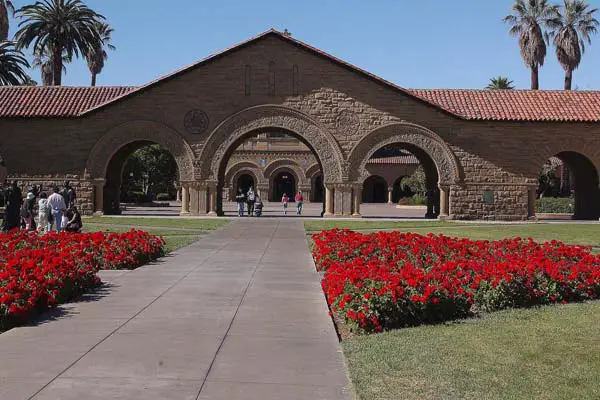What IGCSE Subjects Are Required for Architecture: A Clear Guide
To become an architect, one must go through a rigorous academic and professional process. One of the first steps in this process is obtaining the necessary qualifications.
For students in the International General Certificate of Secondary Education (IGCSE) system, this means selecting the appropriate subjects to prepare them for an architecture career.
While no set list of IGCSE subjects is required to become an architect, certain subjects are highly recommended. These include mathematics, physics, art and design, and a foreign language.
Mathematics and physics are essential for understanding the technical aspects of architecture, while art and design will help develop the creative skills needed to design buildings. A foreign language is also recommended as it can be helpful when working with clients from different countries.
It is important to note that different universities and countries may have specific requirements for IGCSE subjects. Therefore, it is recommended that students research the particular needs of the universities they are interested in attending before selecting their IGCSE subjects.
Understanding Architecture
Architecture involves the artistic and scientific design and construction of various structures. Architects create functional and visually appealing spaces that fulfill client requirements and comply with safety codes and regulations.
The field of architecture is diverse and includes a range of specialties, such as residential, commercial, and industrial design. Architects must possess many skills, including creativity, technical proficiency, and strong communication skills.
The built environment holds immense importance in architecture. Architects must carefully evaluate how their designs affect the environment and the individuals who will reside in the spaces they craft.
They must also be aware of their designs’ historical and cultural context and the social and economic factors that shape the built environment.
To become an architect, one must complete a rigorous education and training. This typically includes obtaining a degree in architecture and completing an internship or apprenticeship program. In addition, architects must be licensed in the state where they practice.
In terms of IGCSE subjects, there are no specific requirements for becoming an architect. However, it is recommended that students take subjects such as Mathematics, Physics, and Art and Design, as these subjects provide a strong foundation for understanding the principles of building design and construction.
🌟 Hey Students! 🚀 Ready for the ultimate experience? Join us on Studentsinside.com's Facebook, YouTube, WhatsApp, and LinkedIn. Click now for tips, fun, and success vibes! 🌈✨ #StudentLife #JoinUs
Essential IGCSE Subjects
To become an architect, students must complete a series of qualifications, including IGCSEs. While no specific IGCSE subjects are required for architecture, some subjects are essential to succeed.
The IGCSE syllabus requires students to take at least one subject from each discipline: Language, Humanities, Mathematics, Sciences, Creative, Technical, and Vocational. However, two mandatory subjects need to be taken in the IGCSE syllabus: Mathematics and English Language.
Mathematics is essential for architects as it is the foundation of all technical design work. Students should take Mathematics at the highest level they can manage, as this will provide them with the necessary skills for their future studies.
English Language is also crucial for architects, as it is the primary language of communication in the field. Strong communication skills are necessary for architects to convey their ideas to clients, team members, and other project stakeholders.
In addition to Mathematics and English Language, students should consider taking Art and Design, Physics, Chemistry, and Biology. These subjects will give students a good foundation in the sciences and arts, essential for architecture.
Art and design is an excellent subject for students who want to pursue a career in architecture, as it teaches them how to think creatively and develop their design skills.
Physics, Chemistry, and Biology are also essential subjects for architects, as they provide students with a solid understanding of the natural world and the physical properties of materials.
Additional Relevant IGCSE Subjects
In addition to the mandatory subjects of Mathematics and English, several other IGCSE subjects can benefit students pursuing a career in architecture.
Design and Technology
IGCSE Design and Technology centers on designing, developing, and manufacturing products. It offers valuable groundwork in design principles, materials, and manufacturing processes, which is particularly advantageous for students keen on architecture.
Geography
IGCSE Geography is a subject that explores the physical and human aspects of the world. It can benefit students pursuing a career in architecture as it provides a better understanding of the environment and how it influences the design of buildings.
Computer Science
IGCSE Computer Science is a subject that focuses on the principles of computer science, programming, and problem-solving. This subject can benefit students interested in architecture as it provides a foundation in computational thinking, which is essential for designing and modeling buildings.
Economics and Business Studies
IGCSE Economics and Business Studies provide an understanding of the principles of economics and business.
These subjects can benefit students pursuing a career in architecture as they provide a foundation in business and financial management, which is essential for running an architectural firm.
History
IGCSE History is a subject that explores the past and its impact on the present. It can benefit students interested in architecture as it provides a better understanding of the historical context of buildings and how they have evolved.
Modern Foreign Language
Studying IGCSE Modern Foreign Language subjects like French, Spanish, German, and Latin can benefit students aiming for architecture careers.
These languages lay the groundwork for effective communication and cultural sensitivity, crucial for engaging with clients of diverse origins and nationalities.
A-Level Subject Choices
When choosing A-level subjects for a career in architecture, a few options exist. While there is no specific requirement for A-level subjects, certain subjects can benefit students who want to pursue a career in architecture.
Maths is one of the most important subjects for an aspiring architect. A strong foundation in maths is essential for understanding architecture and design principles. Students who want to pursue a career in architecture should take A-Level Maths.
English Literature offers valuable benefits to students aspiring for a career in architecture. Effective communication is vital in architecture, and studying English Literature enhances writing and communication skills.
Art and design are other subjects that can benefit students who want to pursue a career in architecture. This subject can help students develop their creativity and design skills, which are essential for architects.
Physics, Biology, and Chemistry offer valuable insights for students aspiring to an architectural career. They foster an understanding of the natural world, critical for crafting sustainable and eco-conscious buildings.
Importance of Skills and Interests
Becoming an architect requires a unique set of skills and interests. It is about being good at math or drawing and having a creative and problem-solving mindset.
Architects must be able to think outside the box and develop innovative solutions to design challenges.
They must also have excellent communication skills to work with clients, contractors, and other professionals in the field.
Drawing is a vital skill for architects. They need to craft precise, detailed drawings of their designs to convey ideas effectively. Additionally, meticulous attention to detail is essential to encompass all design elements and fulfill client requirements.
Aside from artistic abilities, architects must possess adept mathematical skills. They must accurately compute dimensions, angles, and other measurements to guarantee structural integrity and compliance with building codes. Proficiency in problem-solving is equally vital, as architects must adeptly tackle design hurdles as they emerge.
A genuine passion for architecture and design is vital. Architects must be enthusiastic about their craft, investing the time and dedication to craft extraordinary designs. Additionally, they must display creativity and the ability to formulate distinct solutions for design obstacles.
Portfolio Preparation
A portfolio is a crucial part of the application process for architecture schools. It is an opportunity for applicants to showcase their creativity, design skills, and ability to solve complex problems. A well-prepared portfolio can significantly increase the chances of acceptance into a top architecture program.
When assembling an architecture school portfolio, remember that it should effectively communicate ideas through concise visual cues. Employ limited brief, descriptive markers to aid comprehension and assessment. Utilize words sparingly and prioritize conciseness.
Applicants should include a range of work in their portfolio to demonstrate their creative ability. This can include art, design, photography, graphics, visual art, painting, graphic design, and layout. It is vital to show a sense of oneself as a visually creative person and to demonstrate a wide range of creative abilities.
The portfolio should highlight creative prowess, exhibit composition and/or design comprehension, and three-dimensional work proficiency. It must showcase versatility in media and include life drawings.
Remember that a portfolio should always accompany a comprehensive work resume. Text-only resumes are often overlooked, and a portfolio unaccompanied by a resume hinders the admissions committee’s assessment of the applicant’s work.
University Admission Requirements
To study architecture at university, students need to meet specific admission requirements. These requirements may vary depending on the university, but most universities have similar admission criteria.
Firstly, students need to have completed their GCSEs or equivalent. For architecture, students must have a minimum of grade 4 in English Language and Maths. Most universities require at least a grade 4 in three other GCSE subjects.
After completing their GCSEs, students need to complete their A-levels or equivalent. Students need to have a mixture of science or maths and humanities or arts subjects, but this is optional. Most universities require a minimum of AAA grades at A-level.
Universities might consider alternative qualifications like the International Baccalaureate (IB) or Cambridge International A Levels for international students, as long as these credentials are on par with A-levels and fulfill the university’s entry criteria.
Remember that certain universities could necessitate extra prerequisites, like a portfolio or an interview, to evaluate a student’s aptness for the program. Consequently, students should thoroughly investigate the admission prerequisites for each university of their choice.
Alternative Pathways to Architecture
While a traditional academic route may be the most common way to become an architect, there are alternative pathways that can lead to a successful career in the field.
These alternative pathways can benefit those who have not followed a traditional academic route or want to gain practical experience in the field.
Vocational Pathways
An additional route to becoming an architect involves vocational training. Programs from trade schools or community colleges offer hands-on experience and practical skills relevant to architecture. These encompass drafting, building construction, and design courses.
Apprenticeships
Another alternative pathway to becoming an architect is through an apprenticeship. Apprenticeships allow students to work alongside experienced architects and gain practical experience in the field.
Apprenticeships can also provide students with the opportunity to earn a salary. At the same time, they learn, making them an attractive option for those needing more financial means to pursue a traditional academic route.
Work Experience
Work experience can also be a valuable alternative pathway to becoming an architect. Many architecture firms offer internships or other work experience opportunities that can provide students with hands-on experience in the field. Work experience can also allow the students to network with professionals in the area and gain valuable insights into the industry.
College Programs
There are alternative routes to becoming an architect through college programs. Certain institutions offer pre-professional programs that equip students with the necessary skills and knowledge for an architectural career.
Moreover, some colleges provide combined degree programs, marrying architecture with other fields like engineering or construction management.
Conclusion
In summary, students who want to pursue a career in architecture should choose IGCSE subjects that will help them develop skills essential for an architect.
They should aim to achieve a grade 4 in Mathematics and English and consider taking subjects like Art and Design Technology, Science, and Humanities.
By choosing the proper subjects, students can prepare themselves for a degree in architecture and increase their chances of success in the field.








